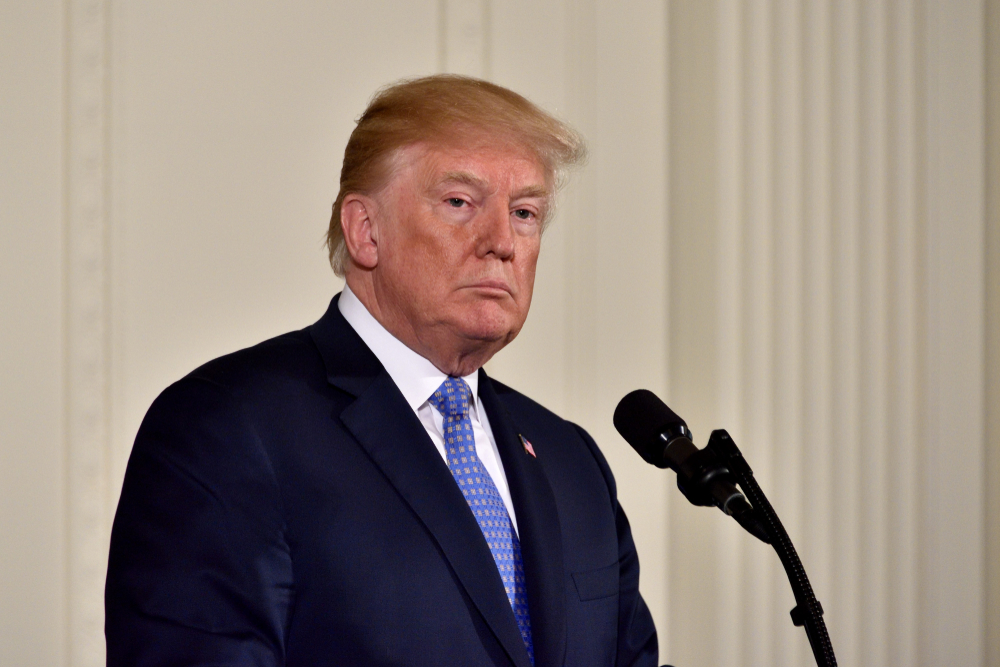Business
Trump Looking To Crack Down on US-Listed Chinese Companies

Just a day after the Nasdaq Exchange took aim at Chinese companies when it announced stricter regulations for new stock listings, the Trump administration said yesterday that it aims to find ways to crack down on fraudulent Chinese companies that list their shares here in the US.
Officials in the Trump administration say that investors have lost billions of dollars investing in some of the 156 Chinese companies listed on American exchanges. The companies simply aren’t subject to the same rules and regulations that govern companies here in the US.
Chinese companies listed on US exchanges don’t fall under the jurisdiction of the Securities and Exchange Commission, they are only subject to the jurisdiction of the China Securities Regulatory Commission. Naturally, when an issue arises, the Chinese company can ignore any type of legal threat. They don't have permission to cooperate with investigations by foreign regulators.
As we mentioned in yesterday’s article, this means the Public Company Accounting Oversight Board (PCAOB), which was specifically created to review audits of publicly traded companies, has no ability to enforce any accounting measures or standards on Chinese companies.
Lack of Transparency
In an interview on Fox Business yesterday, Larry Kudlow, director of the National Economic Council, said “We have learned that Chinese companies are not transparent. A lot of these companies, by the way, have already had scandals and cost investors a lot of money.”
Carson Block, founder of Muddy Waters Research, recently put out a scathing report on Chinese education company GSX Techedu. He said that the company is a “near total fraud” and has been inflating revenue numbers. Block has been focusing on what he believes are fraudulent Chinese companies for nearly a decade. The “substantial majority of companies” from mainland China listed on U.S. exchanges go on to “committing some degree of fraud,” said Block. He also called TAL Education a “real business with fake financials” in 2019. Additionally, just last month, the company admitted to inflating sales figures.
Fraud is so rampant with Chinese companies. Many consider a company that makes almost one-third of its revenue through fraud as a real one, Block explained. They “wouldn’t have been able to raise venture capital without the ability and willingness to commit fraud,” he added.
No Way To Discourage
He says with the way the different laws are set up, nothing can discourage a Chinese company from committing fraud.
“The problem here is that if you’re a PRC national, then you have nothing to lose by trying to defraud U.S. investors,” Block said during a recent FOX Business interview. “If it works out well, you'll make tens, hundreds of millions of dollars. And if it doesn't work well, you know, there's nothing they can do to you.”
He says it shouldn't allow countries that prohibit inspection by auditors to list on U.S. exchanges. They should also have their foreign private-issuer status revoked.
President Trump recently expressed concern about requiring Chinese companies listed in the US to follow US accounting practices. He believes this could cause some Chinese companies to move their listings to either London or Hong Kong.
Block, for his part, welcomes the exodus. He says it is good for the country. This makes it harder for US investors to buy the shares of fraudulent companies if they traded on overseas exchanges.
Up Next:
- Global Markets Drop, Spooked by China-US Tensions over Coronavirus
- David Tepper: Most Stocks Overvalued Since 1999, Prices Are ‘Nuts’
- American Consumers Will (Or Won’t) Drive The Economic Recovery















